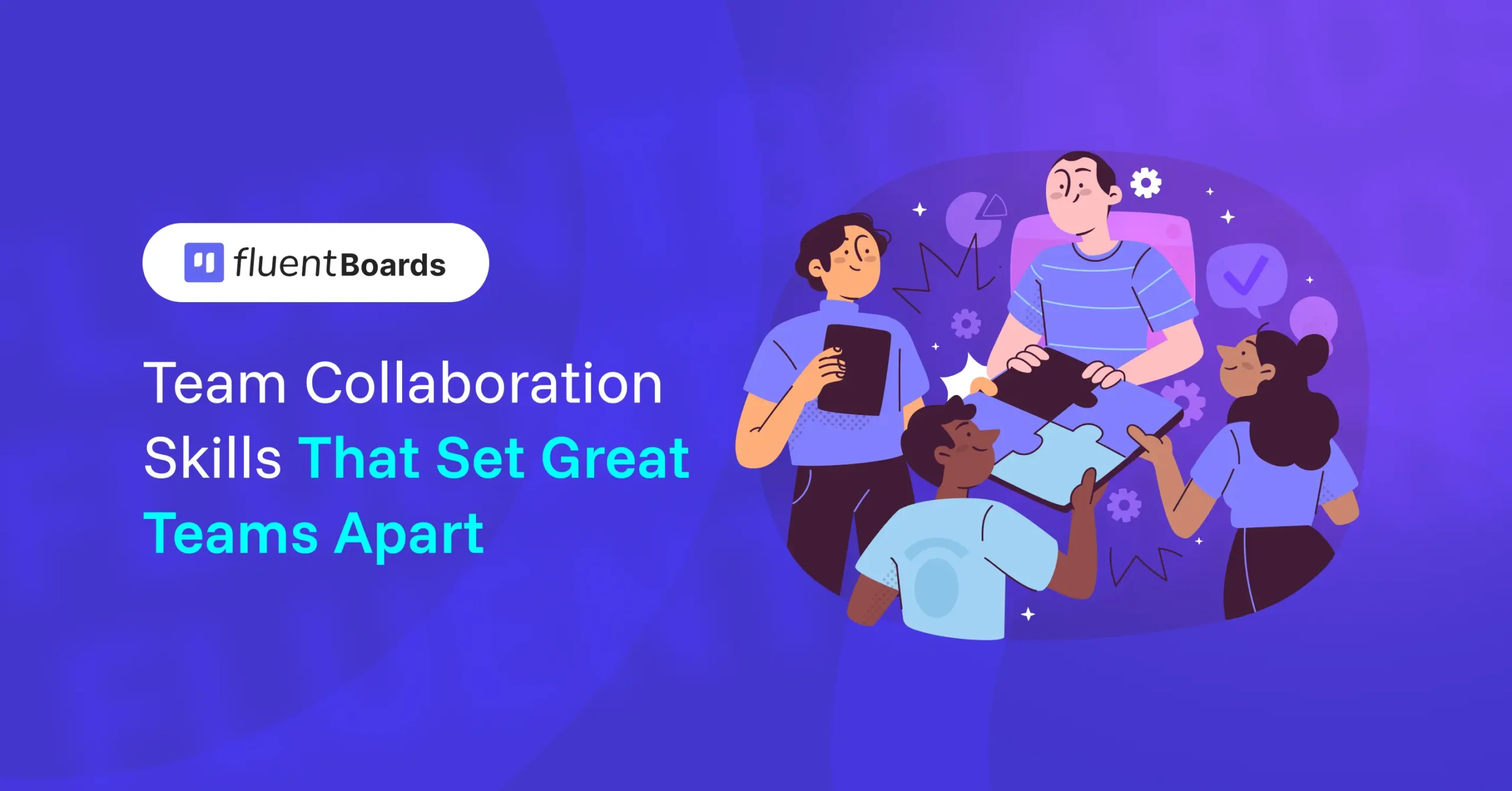
11 Powerful Team Collaboration Skills That Will Set Your Team Apart in 2026
Coming together is a beginning. Keeping together is progress. Working together is success.
— Henry Ford
This timeless quote illustrates the essence of what makes a powerful team thrive: collaboration.
But let’s be honest.
Just putting smart, capable people in one place doesn’t mean they’ll automatically work well together.
In fast-moving, often hybrid workplaces, great teamwork doesn’t just happen, it’s built.
And, to build a team that works in true sync, it comes down to specific team collaboration skills that help teams :
- Improve team communication
- Provide mutual support
- Stay aligned on goals
- Get things done together
This blog explores powerful collaboration skills designed to strengthen your team.
Let’s dive in!
What are Collaboration Skills?
Collaboration skills mean bringing multiple individuals together, combining their strengths, ideas, and efforts to work toward achieving a common goal.
And in project environments, the one common goal is always project success.
But success doesn’t happen in silos. To truly achieve outcomes, individuals need to take ownership, support each other, learn as a team, and, above all, prioritize working together.
That’s where collaboration skills truly drive effective teamwork, enabling teams to:
- Bring in different perspectives to tackle project challenges better
- Coordinate across time zones, resources, and team structures
- Shift focus from “my part” to “our progress”
- Balance speed with quality when deadlines are tight
So, in essence, collaboration skills empower a range of abilities, focusing on the active building of positive team relationships that support both personal and organizational growth.
Also Read: Proven leadership styles in project management that drive real results
Must-Have Team Collaboration Skills for Effective Teamwork
Let’s break down the key team collaboration skills that help teams stay connected, productive, and ready for any challenge.
Open-mindedness
In teams, open-mindedness means embracing ideas, even the ones that don’t match your approach, and viewing differing opinions as assets rather than barriers.
When a team tackles a challenge, clashing perspectives are inevitable and incredibly valuable. In fact, diversity in thought isn’t noise rather it’s your team’s hidden advantage.
Therefore, open-mindedness helps teams explore ideas beyond their usual playbook, often uncovering creative solutions that spark real growth.
It shifts the focus from being “right” to finding what works best.
In order to build this skill:
- Invite ideas without judgment
- Lean into constructive disagreement
- Stay curious about unfamiliar viewpoints
- Encourage debate to challenge assumptions
- Support a psychologically safe environment for contribution
Remember, the most innovative solutions often come from the most unexpected voices.
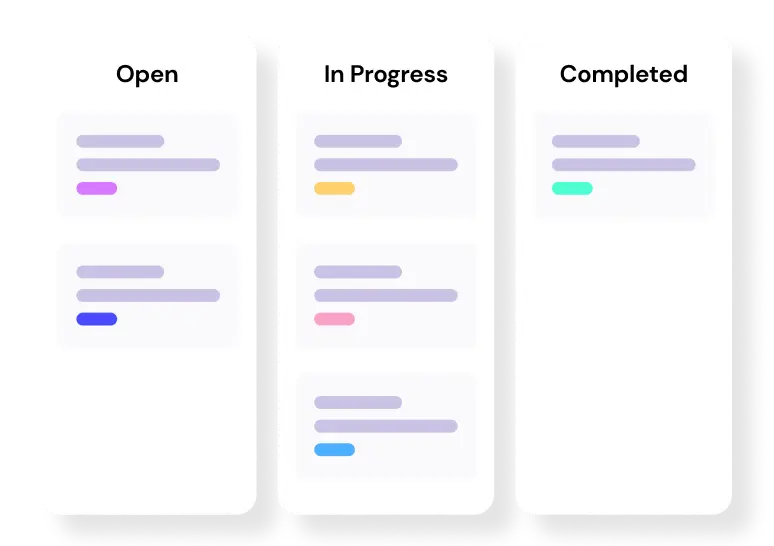
Level up your WordPress project management game with this Trello equivalent solution – where limitless possibilities come at an unbeatable price!
Communication
Effective communication is the foundation of strong collaboration. It’s the glue that keeps team members aligned, ensuring everyone is:
- Clear about their roles and responsibilities
- On the same page, discussing strategies, and working towards common goals
If communication breaks down, all your other efforts may go in vain! In fact, 86% of professionals say poor communication is the root cause of workplace failure.
On the flip side, teams that communicate effectively can see productivity rise by up to 25%!
To strengthen communication within your team:
- Adapt to various communication styles
- Clearly communicate your ideas
- Ask questions to ensure understanding
- Foster an environment where all voices are heard
- Use clear, concise messaging to avoid confusion
- Actively listening and providing constructive feedback
Ultimately, building a collaborative environment requires a system where communication strengthens teamwork, prevents misunderstandings, and drives productivity.
Active listening
Active listening is the ability to make a conscious effort to understand what someone is really saying by asking clarifying questions and fully considering their point of view before responding.
While active listening is one aspect of communication, it’s a non-negotiable skill for effective team collaboration and deserves a seat at the table. Without it, misunderstandings and missed opportunities are bound to occur.
When employees feel unheard, they often stop trying to communicate with the team. This leads to:
- A drop in idea-sharing, as team members feel their contributions don’t matter
- Communication breaks down, leading to confusion and missed opportunities
- Trust weakens, and collaboration begins to unravel
On the other hand, when team members actively listen to each other, it creates an environment of mutual respect where everyone feels their contributions are valued, paving the way for truly effective collaboration.
So, try to develop the habit of active listening and promote that culture within your project team.
And, to help with that, here are some proven tips you can follow:
- Give full focus when someone is talking
- Don’t interrupt or finish their thoughts
- Ask open-ended questions that invite more detail
- Summarize what you heard to confirm understanding
- Use small cues (like nods or verbal feedback) in virtual call
Emotional intelligence
Emotional intelligence is one of the most underrated yet powerful strengths in effective team collaboration.
While technical skills often take center stage, a team’s collective emotional intelligence is the bedrock of effective partnership.
It’s the ability to recognize, understand, and manage your response while being aware of others.
In practice, this means being able to sense when a teammate is stressed or burned out and responding with compassion, perhaps by offering support or adjusting deadlines, rather than adding pressure.
When teams develop emotional intelligence skills, they:
- Understand group dynamics and emotional cues
- Resolve conflict with empathy
- Build long-term trust through steady support
For example, you may learn how to share feedback with a teammate based on how they react when others offer constructive criticism in different ways.
That kind of emotional awareness builds trust, reduces tension, and makes collaboration feel easy, even during challenges.
Trust-building
Trust is more than just reliance! Rather, it’s the quiet confidence you feel in your teammates.
Trust peaks when you know each member will bring their best, speak up when challenges arise, and support one another without hesitation.
It’s the assurance that deadlines will be met with care, obstacles will be tackled together, and every contribution will be respected and valued.
Here’s how trust shows up in strong team collaboration:
- You count on teammates to manage their work, meet deadlines, and uphold quality, without micromanaging
- You trust their strengths and judgment, making it easier to delegate with confidence
- And when obstacles come up, you know they’ll ask for help rather than push through alone
This way, a team atmosphere is created where everyone feels supported, and collaboration becomes the driving force behind progress.

Every Project Collaboration Features to Your Fingertips!
Conflict resolution
Conflicts are bound to arise in almost every collaborative environment as team members come from various backgrounds and perspectives.
But here’s the thing: conflict isn’t always a bad sign! In fact, it can be a powerful spark for growth if handled the right way.
So, here’s how you can turn conflict into a constructive force :
- Identify the root cause of the conflict to address the real issue
- Find common ground by focusing on shared goals and values
- Work together to reach a mutually agreeable solution
- Listen actively and ensure all voices are heard
- Take personal responsibility and avoid blaming others
- Respect everyone and be open to compromise for a positive collaborative solution
By mastering conflict resolution, you can make team management a breeze! It’ll help you turn challenges into opportunities, strengthen team dynamics, and foster an environment of mutual respect and collaboration.
Problem-solving
Effective problem-solving is the ability to identify obstacles or challenges faced during a project and figure out how to overcome them together.
When a team is good at problem-solving, it usually comes down to:
- Define the problem clearly to understand what needs to be addressed
- Brainstorm possible solutions to gather a range of ideas
- Evaluate the solutions to find the best and most feasible option
- Implement the solution by taking action and assigning tasks
- Monitor and adjust as needed to ensure the solution is working effectively
And here’s the best part: when teams build these skills, they don’t just solve problems, they learn from them, adapt faster, and collaborate better each time. That’s how resilient, forward-moving teams are built.
Resilience
Resilience is all about bouncing back from challenges, staying motivated, and finding solutions even when things don’t go as planned.
And, in team collaboration, this skill is essential. Because challenges are inevitable, unplanned changes frequently lead to project setbacks, such as:
- Shifts in company priorities
- Changes in project goals
- Adjustments to initial project requests
To stay ahead of challenges, your team must anticipate both the expected and the unexpected. So, how do you build these abilities?
Well, here’s how:
- Create a team culture where setbacks are openly discussed
- Encourage flexible thinking and creative problem-solving when facing obstacles
- Focus on moving forward, not placing blame, to keep momentum alive
- Recognize progress regularly to keep morale high during tough phases
By strengthening resilience, teams can stay united, bounce back from setbacks, and maintain forward momentum even during difficult times.
Adaptability
Adaptability reflects how well a team adjusts when faced with new information, changing situations, or unexpected challenges.
In a collaborative setting, it’s the ability to stay open-minded and flexible. And, teams build adaptability when they:
- Adjust their approach in response to new information or challenges
- Stay open-minded and continuously expand their skills and knowledge
- Bring in fresh ideas that help the team evolve and innovate
- Contribute unique perspectives that strengthen collective problem-solving
When your team embraces adaptability, it becomes easier to face the unexpected without losing momentum and creates a space where learning and collaboration go hand in hand.
Delegation
Delegation is a practical collaboration skill that involves assigning tasks based on each team member’s strengths and expertise.
This collaboration skill allows every team member to focus on their role and responsibility, which will drive productivity and results.
Without proper delegation:
- Workloads become uneven, with some overburdened and others underused
- Trust weakens as skills aren’t fully recognized
- Efficiency drops and dependent tasks get delayed when there’s no clear ownership
However, keep in mind that, delegation is more than just task distribution! It’s a key to maintaining team balance and focus.
To build this skill:
- Assign tasks based on each person’s strengths and expertise
- Clearly allocate roles and responsibilities to prevent anyone from feeling overwhelmed
- Give team members opportunities to develop leadership skills by taking on more responsibility
- Ensure everyone has a clear understanding of their roles and tasks
As a result, effective delegation strengthens collaboration, ensuring that each team member is empowered, focused, and aligned toward achieving collective goals.
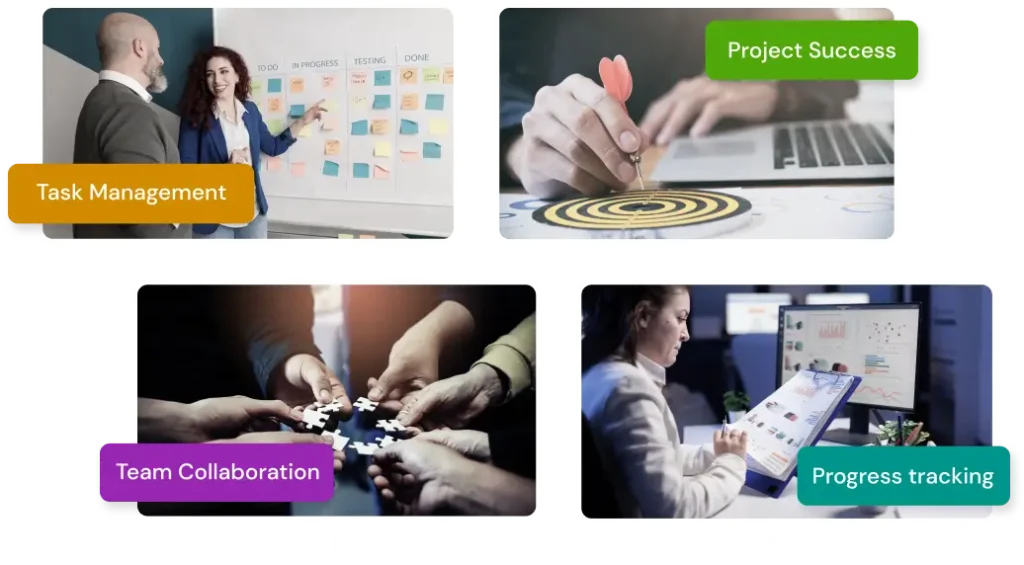
Time management
We’ve all seen collaboration slow down, not from lack of effort, but from blurred priorities, slow decisions, and missed updates.
That’s exactly where strong time management skills can make all the difference for your team.
Managing time in collaboration is all about staying organized, focused, and ensuring deadlines are met without the stress or burnout.
Here’s how you can build effective time management in your team:
- Set realistic expectations and communicate team members’ capacities
- Prioritize tasks to focus on what’s most urgent
- Allocate time blocks and stick to schedules to avoid delays
- Track deadlines and use tools to stay on track
- Hold regular check-ins to monitor progress and adjust workloads
Also read: Proven Collaboration Tips
Why Team Collaboration Skills Matter
Collaboration skills are often called “soft skills,” but they offer HUGE benefits for teamwork, productivity, and the success of projects.
Here’s a stat to prove it: 73% of employees say their work improves when they collaborate with a team.
Here’s what strong team collaboration skills bring to the table:
- Strong collaboration leads to a constant flow of new ideas, helping teams stay innovative and creative when solving problems.
- When team members collaborate well, they can quickly adapt to changes, keeping the team flexible and responsive in dynamic environments.
- Building strong team dynamics helps eliminate hierarchical barriers, creating an inclusive atmosphere where every member’s input is valued, no matter their role or status.
- Collaboration skills strengthen team connections, encouraging trust, accountability, and mutual respect among team members.
- Sharing knowledge and expertise reduces mistakes, enhances performance, and ensures alignment across the team.
- Feedback loops become more efficient, enabling team members to provide timely input, make adjustments, and keep the project on track.
- Teams can complete projects faster, as clear communication and teamwork help ensure tasks are completed efficiently and deadlines are met.
- Collaboration increases task efficiency, allowing team members to delegate responsibilities based on strengths for optimal performance.
Want to learn more? Take a deeper dive into the benefits of collaboration
Develop Strong Collaboration Skills for Success!
The foundation of a successful team is collaboration, and by applying the collaboration skills we’ve covered, you can empower your team to navigate challenges and innovate.
Remember, consistently developing these skills is the root of sustained team success.
So, take the next step, implement these collaborative skills, strengthen your team’s growth, and achieve outstanding results together!
Thank you for reading. Hope this guide helps you build a stronger, more collaborative team!
Let’s redefine project management with FluentBoards!
Get Tips, Tricks, & Updates
We won’t send you spam.










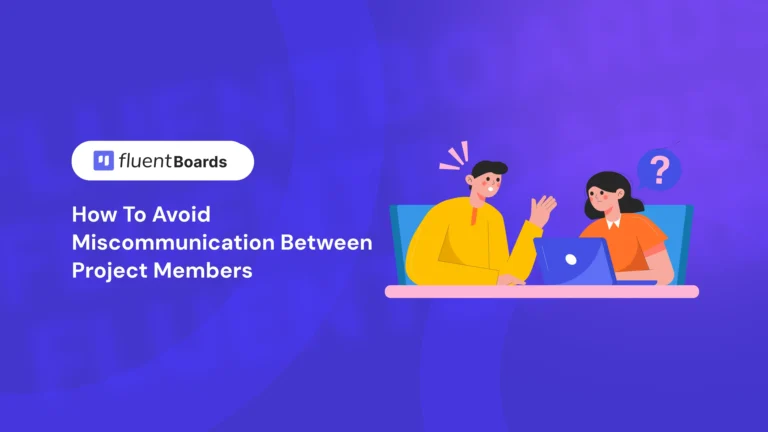

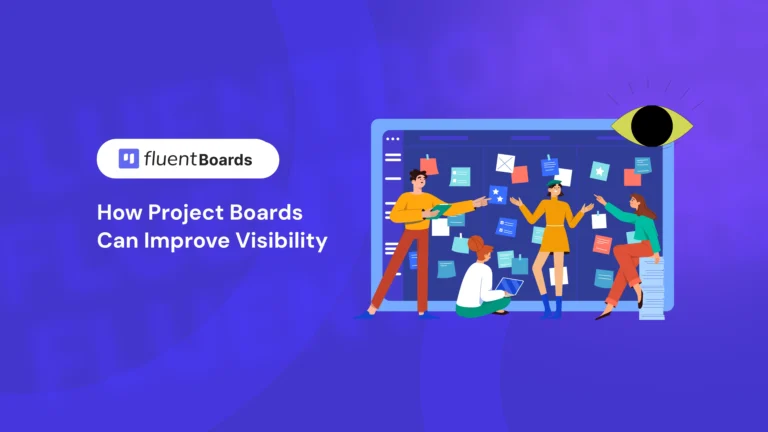

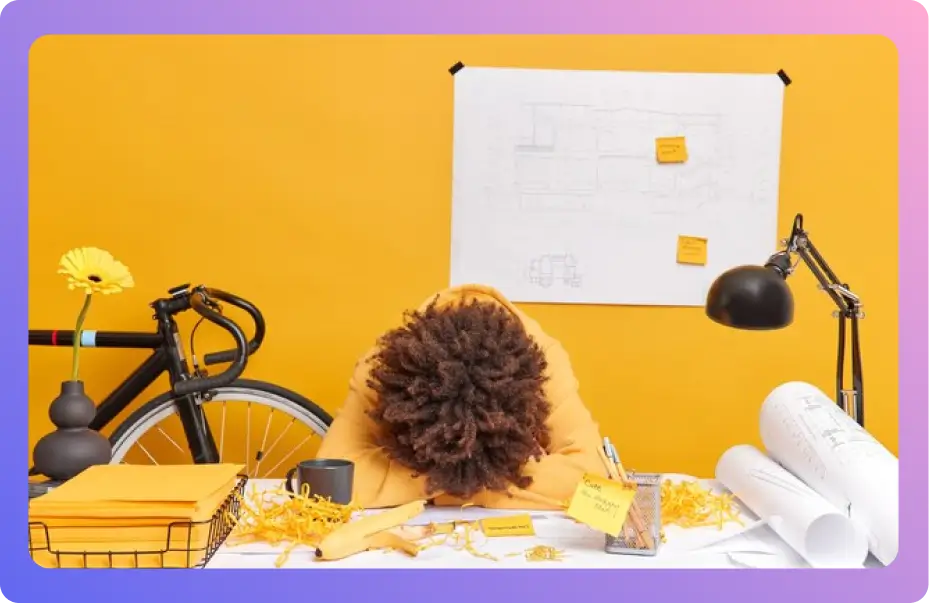
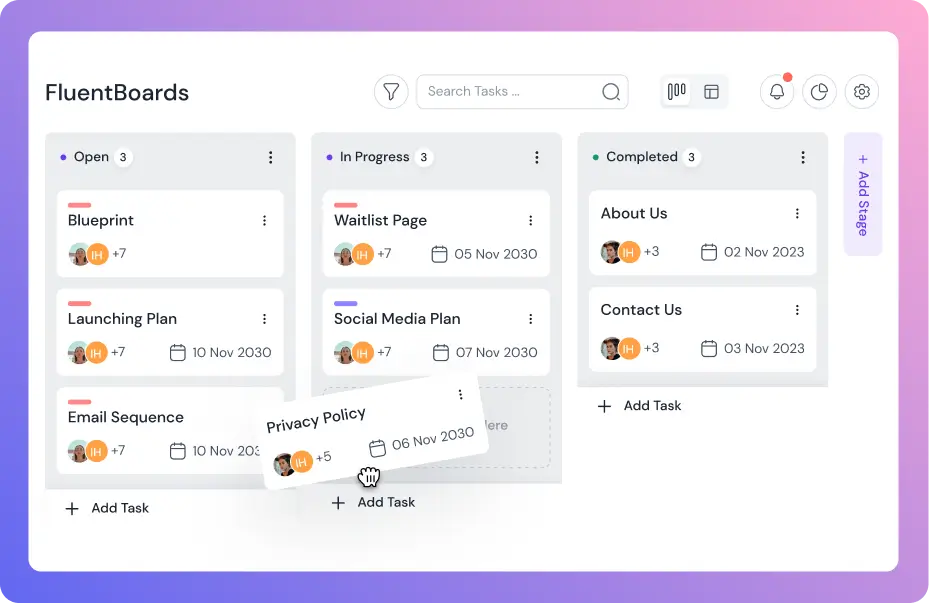
Leave a Reply